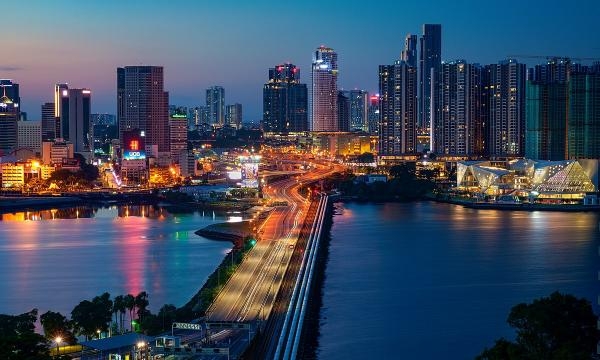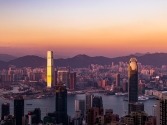
COVID-19's impact on Singapore ‘intense': HSBC report
It derailed short-term growth and could hinder long-term potential output.
The impact of COVID-19 on ASEAN, particularly Singapore, has been significantly intense, according to HSBC’s recently released “ASEAN in 2021” report, derailing not only short-term growth, but also cutting down long-term potential output.
The region’s overall economy was set to “contract sharply” in 2020, due to the movement restrictions imposed to curb the spread of the virus. Singapore has been one of the ASEAN countries to keep the first outbreaks in check, which eventually resulted in a notable economic recovery in Q3 2020.
In Singapore, the manufacturing sector was relatively spared from movement restrictions during the circuit breaker period. “Thanks to the city-state’s large electronics and biomedical sectors, coupled with the increase in digitisation and work-from-home [arrangements], shipments surged, and have continued to outperform in 2020,” HSBC said.
Singapore also saw strong inflow in 2020, primarily due to its electronics sector.
Meanwhile, the spread of COVID-19 has impaired the “main growth engine” of both global and regional economies—private consumption. According to HSBC’s report: “A full recovery is impossible until the pandemic is fundamentally addressed, and for this, we must look at vaccine developments.” The same scenario applies to Singapore, and even though the city-state’s policymakers have a proven track record of keeping the spread of the virus in check, HSBC believed that “borders will remain shut until a large share of the population is vaccinated, with significant headwinds for tourism industries."
Progress in securing vaccines has already been underway, with Singapore leading the ASEAN region as it’s the only economy that would likely be able to immunise its entire population in 2021. “The government has suggested the city state will receive Pfizer vaccines for the entire population this year,” HSBC remarked.
As for the entire ASEAN region in general, consumer recovery would take time; whilst partial immunisation should “allow governments to lower restrictions and consumer confidence may increase,” domestic consumption could remain below-potential. However, that wouldn’t be the case for Singapore.
According to the report: “Relatively high rates of inoculation may not only mean that domestic consumption can return to trend, but the government may lower border restrictions before year-end.” Following this scenario, Singapore would most likely further cement its role as a key business services, manufacturing, and travel hub in the following years.
“Fiscal policy has been the crux of the response to COVID-19,” the report added. Many ASEAN country members have launched fiscal stimulus packages—with five in Singapore—therefore bringing the total fiscal policy response to as much as 20% of the GDP.
All across ASEAN, policymakers have focused stimulus support to aid the region’s labour markets, particularly in Singapore, Thailand, and the Philippines. In addition, there also have been substantial cash transfers as well as direct business assistance, primarily intended to balance the labour market dislocations that have occurred.
























 Advertise
Advertise








